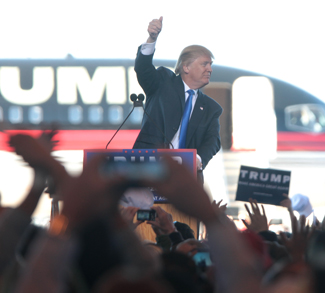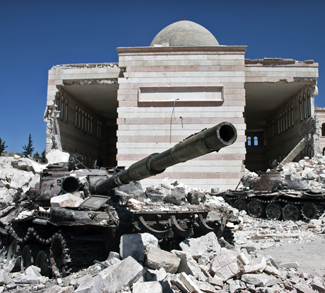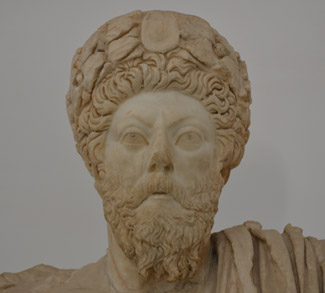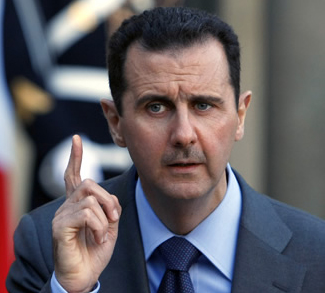President Donald Trump has barred the doors of America to refugees and citizens of seven Muslim majority countries. Presumably, this move is part of his declared war against ISIS/Islamic State. Indeed, Trump has already signed an executive order for the Pentagon to submit, within 30 days no less, a strategy to defeat the Islamic State. The executive order freezes for 120 days admission for all refugees – indefinitely for Syrian ones. After four months, Christian refugees and members of other persecuted minorities on religious grounds will be given priority. As Leporello, Don Giovanni’s servant in the homonymous opera, Trump presented a veritable catalogue of countries whose citizens are suspended from entering the U.S for 90 days. The seven Muslim-majority countries included Syria, Libya, Iran, Iraq, Somalia, Sudan and Yemen. Iran has described Trump’s ban as “an affront” and announced the implementation of the reciprocity principle, banning the entry of American citizens to “protect the dignity of its people.” President Trump may want to rethink that one, as it would compromise Boeing Co.’s $27 billion deal to supply Iran Air with new airliners. So far, the biggest beneficiary of the Trump ban is Airbus…
In effect, the Trump strategy has pulled Samuel Huntington’s never forgotten Clash of Civilizations concept from the closet. Indeed, this article does not intend to criticize Trump’s policy from the perspective of legal or humanitarian consequences. Rather, it wants to evaluate the effectiveness of the strategy to address the problem of global Islamic fundamentalism. Simply put: it doesn’t work. And that’s really all you need to know. If you want to find out why, read on.
The Clash of Civilizations
Huntington predicted that the post-communist world would be marked not by a clash between individuals, but between civilizations. The events of the last 30 years would appear to have validated the theory. But Trump’s plan may confirm it. Islam has regained political influence and even power in opposition to the institutions and the culture of the West, considered little better than Satan himself. That, rather than democracy, was the true intent of the so-called ‘Arab Spring.’
But Trump’s edict has made the fight against ISIS less rather than more effective. A clash of civilizations benefits the radicals rather than the West. ISIS doesn’t have to win battles. It wins the war simply by fighting the West, losing might even be desirable. By preventing migrants and refugees from seven Muslim majority countries, Trump has accentuated the symbolic role of the United States as the main enemy of Islam.
Trump has done nothing but help ISIS expand the Islamist coalition against the United States. Moreover, it limits the extent to which Washington can secure protracted and reliable support from other Islamic countries in fighting ISIS – primarily Iraq. But this represents only some of the contradictions. Three of the countries that Trump has cited have majority Shi’ite populations (Iran, Iraq) or are controlled by the minority Shiite (Syria). If anything has been clear about ISIS’s goals, it’s their professed desire to wipe out Shiites – even more than Christians. Trump has essentially alienated those who have most to gain from the defeat of ISIS.
Among other things, by identifying Syria, Trump goes against the interests of his ideal ally Russia.
Apart from the legal and humanitarian blowback of the executive order against migrants (i.e. the legal battle and chaos at airports), Trump’s order, at the stroke of a pen, has intensified global political risk rather than helped to defeat Islamic State. So far, apart from disturbed lone wolves in San Bernardino and Fort Lauderdale, the Islamic State has acted mainly in lands far away from the United States. ISIS was more of a regional than global threat. Now, there’s no doubt of ISIS’s potential as the latter. The Obama administration kept it regional – or tried to – by letting regional powers deal with it. But Russia has shown that only a superpower can play an effective role, if not in fact an essential one. In globalizing the ISIS problem further under a clash of civilization lens, the dangers of Islamist radicalism have become greater. ISIS, in the eyes of Trump and much of worldwide public opinion, is the symbol and spearhead of political Islamism after decades of incubation throughout the Islamic world. Trump’s decree has already given political Islamism the validation it needs to gain global appeal, fueling a global danger.
Trump Ignores the Role of Shiites in the Fight against Islamic State
Indeed, the Sunni ISIS’ main enemy has been Iran and the Shiites of the Middle East in general. The Obama administration has sought and reached an agreement with Iran. If the public explanation for lifting sanctions was to stop Iran’s nuclear armament efforts, the more immediate goal was to secure Iran’s unofficial support against Islamic State. Wanting to disengage the United States from the region, Obama (along with many strategists) thought it wise to allow, if not back outright, ISIS’s regional enemies to contain the overall danger within the region. But Trump – at least during the election campaign – slung mud against the Iran nuclear deal. The new president believes that you can’t distinguish between Sunni and Shiite Islamism; he thinks that the Islamist danger should be addressed in toto.
President Trump believes that Iranian Islamism is no less dangerous than ISIS. The Iranian Revolution of 1979 that brought the Ayatollahs to power at the expense of the destruction of a rapidly modernizing state. But, while Iran did give impetus to the revival of political Islam in the world, it has also retained a strong and functioning state apparatus and the prestige of a millenarian culture. Iran appears one and a thousand nights away from that of Islamic State. This is what ISIS wanted: an official declaration for it to wage a war against the West. The Islamic state is conscious of the effects stemming from the disintegration of Middle Eastern state institutions and the fact that such decomposition has an irreversible character that makes a military campaign productive, but completely counterproductive from a political point of view.
But, Trump sees more than just ISIS. He sees the organization/state as part of a larger cultural battle. In other words, the war on Islamic State is a long-term policy, comparable to that carried out for 45 years against communism in Soviet times. That’s why Trump is playing out, without calling it by name, Huntington’s Clash of Civilizations. The Islamic world, from Morocco to the Philippines or from Asia to Central Africa, includes about a quarter of the world population: 1.6 billion people.
ISIS Has Challenged the West’s Colonial Legacy
Islam has a long history of organizing political power over very large territories (the Mogul Empire, the Caliphate). It has never abandoned its aspiration to political power to an internal process of secularization. The countries of the Middle East and North Africa consider secularization as a colonial remnant and a symbol of the West’s military and economic superiority. Islam, the culture rather than the faith, has poorly digested its downfall and in the period from 1700 to the present. That’s the period when the West has dominated in many fields, from science to technology, to the military and politics. There is no substantial difference between political Islam and the religious Islam historically and theologically. But, the West has imposed secular values and structures.
A good illustration of this process is the establishment of Greater Lebanon, when France isolated Shiite and Sunni-majority provinces in southern and northern Lebanon, such as Tripoli, to create a majority Christian state – the only one of its kind in the Middle East. The civil war of 1975-1989 was an effort to break this inherited system. The West considered the level of progress of a Middle Eastern society by its degree of religious attachment: the less religious the better. The Europeans saw the Arabs’ attachment to Islam as evidence they needed to be civilized. That is still true today – in some ways, it may even be right from a wider perspective. But, it still feels like a cultural imposition. The British and French mandates over the Middle East after WW1, which led to the formation of Syria, Jordan, Iraq and Lebanon, encouraged political systems that have conditioned the political life of the region for more than a century.
Rather than implementing their individual visions, the local elites, starting with the monarchies, were faced with revolts and strife. The new rulers had no other goal than to control the states to which they were initially opposed. Even after the Baath (Arab nationalists) rose to power in Iraq and Syria, ideological aspirations had to give way to basic population control. The Baathist government in Syria has already played the card of imposing secular approach to the conception of the state. Shortly before the beginning of the “Arab Spring” in Syria, in 2010, the Syrian government had banned the use of the niqab and the burqa, while some sectors of the population were always pious, bordering on fundamentalist Islam.
Arab unity served only an initial purpose: to build popularity. But as soon as they are in power it is evident that what interests them is not unity but ‘control. Behind the Arab nationalist rhetoric, the practice needed management of community, ethnic, regional and confessional interests. Iraq and Syria are clear examples: there are no political parties in the European sense; there are but communal parties, Arabs and Kurds, Shiites, Sunnis and Alawites. These have concealed the fact that the ‘natural’ political arrangement in the Middle East is the ‘Islamic state’ (here intended as the historical model rather than the ISIS variety). This is not to suggest that the model is right, just the way it’s perceived.
Trump Has the Right Goal but He’s Played the Wrong Card
Accordingly, Islamic State’s propaganda has reached far beyond the local interests of the Sunni Arabs of Iraq or Syria. In fact, it represents an appeal to defend the “true” Islam and the Islamic ummah against the “Crusaders.” Thus, foreign fighters originating from Muslim countries, as well as from Europe, have arrived in droves to fight the “unbelievers.” The West, for its part, has fueled the phenomenon of Islamism. It has used some Islamists against other Islamists, distinguishing (artificially) between religious and political Islam. President G.W. Bush called Islam ‘a religion of peace,’ trying to distinguish between the religious/cultural Islam from the political/military. But this was a problematic effort: there is no distinction between the two.
For his part, Trump has exaggerated, at least in practice (although it might make sense from a philosophical perspective), in dealing with Islamism as an ideological and cultural enemy to fight on all fronts inexorably. Trump’s new refugee/migration ban puts countries such as Turkey (which is becoming Islamist, after decades of secularism), Morocco, Algeria, Jordan on-edge as well – even though they are not included in the ban. Most of all, the ban has no effect on the most Islamist country of all, in practice if not in name: Saudi Arabia.
That said, if Trump wants to push the notion of a cultural and social political war against Islam, comparable to the Cold War against communism, he needs strong alliances. He needs propaganda and weapons. He also needs allies. But Trump – and with him some emerging European nationalist leaders who may win elections in 2017 – are rushing to put all eggs in one basket to pursue what they feel is necessary to ensure the West’s long-term survival. Trump is especially wrong in challenging Iran by including it on the ban list, expected though it was. Iran would be, as is Russia, a veritable ally in the war against ISIS. In fact, Iran and Russia have contributed largely to fighting ISIS in Syria.
If Trump wants to join Russia, he must adopt more open vision toward Iran. Meanwhile, Trump’s rash immigration control has done more to promote ISIS’s strategy than his own. Trump’s statements and policies have confirmed that America is the Islamic State’s ideal enemy. Trump has created new converts and radicalized Muslims in the U.S. and Europe. Hillary Clinton and Barack Obama, in public, never demonized Muslims, even if they made a mess of the Arab Spring situation, completely or deliberately misreading its aims. Their favorite slogan was “Islam is not our enemy.” But Trump has done the opposite in no uncertain terms. To him “Islam is the enemy” and this is the strategy that one would use to mobilize a global Jihad against the United States and the West.
So far, the tycoon has promised to eradicate the Caliphate at all costs, bombing and sending at least 30,000 soldiers to fight, not excluding the use of nuclear weapons. ISIS followers revel in the prophecy of the “final battle” in the Syrian city of Dabiq, where they will triumph over their enemies. They are waiting for Trump.




